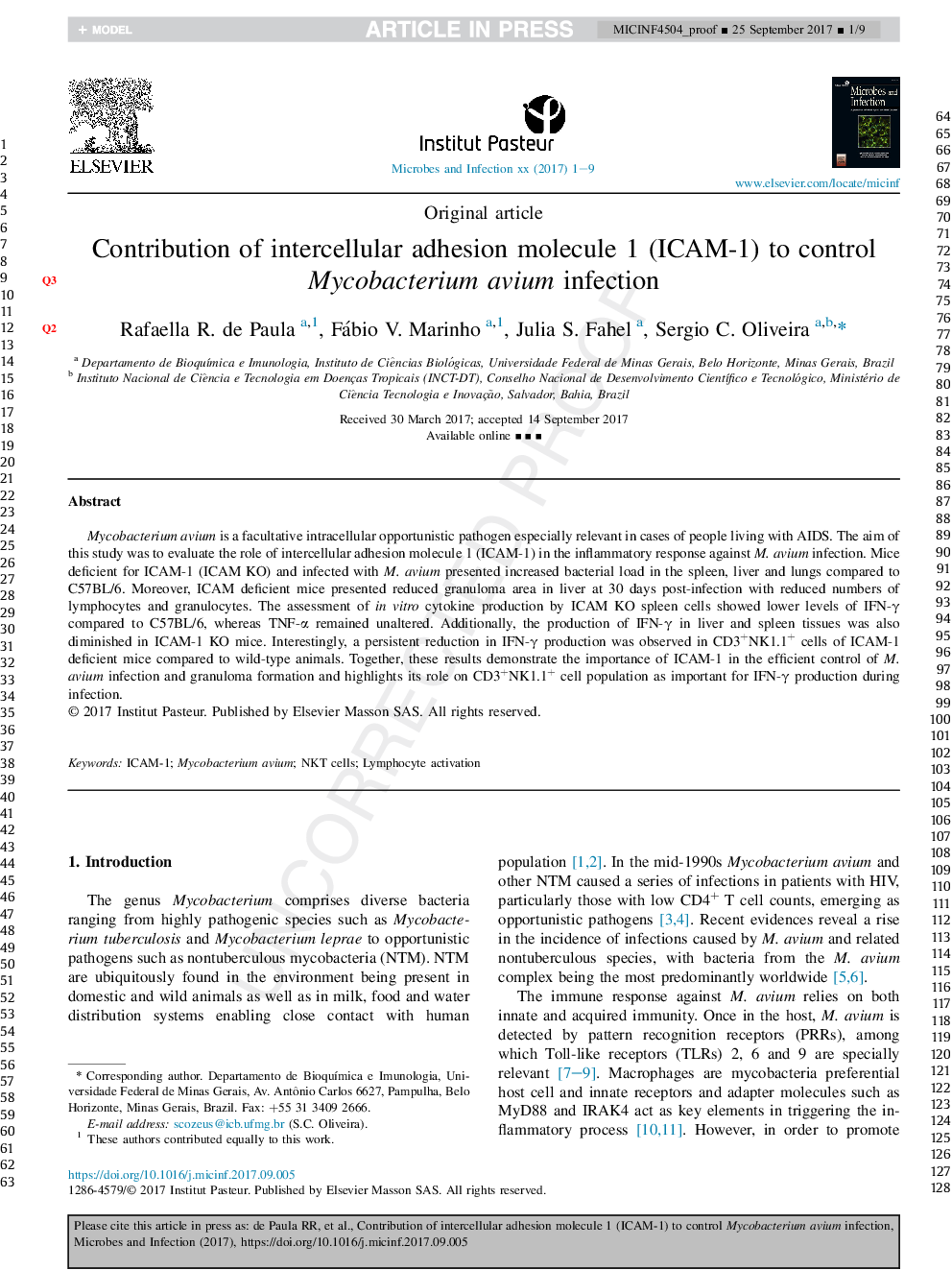| Article ID | Journal | Published Year | Pages | File Type |
|---|---|---|---|---|
| 8749143 | Microbes and Infection | 2017 | 9 Pages |
Abstract
Mycobacterium avium is a facultative intracellular opportunistic pathogen especially relevant in cases of people living with AIDS. The aim of this study was to evaluate the role of intercellular adhesion molecule 1 (ICAM-1) in the inflammatory response against M. avium infection. Mice deficient for ICAM-1 (ICAM KO) and infected with M. avium presented increased bacterial load in the spleen, liver and lungs compared to C57BL/6. Moreover, ICAM deficient mice presented reduced granuloma area in liver at 30 days post-infection with reduced numbers of lymphocytes and granulocytes. The assessment of in vitro cytokine production by ICAM KO spleen cells showed lower levels of IFN-γ compared to C57BL/6, whereas TNF-α remained unaltered. Additionally, the production of IFN-γ in liver and spleen tissues was also diminished in ICAM-1 KO mice. Interestingly, a persistent reduction in IFN-γ production was observed in CD3+NK1.1+ cells of ICAM-1 deficient mice compared to wild-type animals. Together, these results demonstrate the importance of ICAM-1 in the efficient control of M. avium infection and granuloma formation and highlights its role on CD3+NK1.1+ cell population as important for IFN-γ production during infection.
Related Topics
Life Sciences
Immunology and Microbiology
Immunology
Authors
Rafaella R. de Paula, Fábio V. Marinho, Julia S. Fahel, Sergio C. Oliveira,
